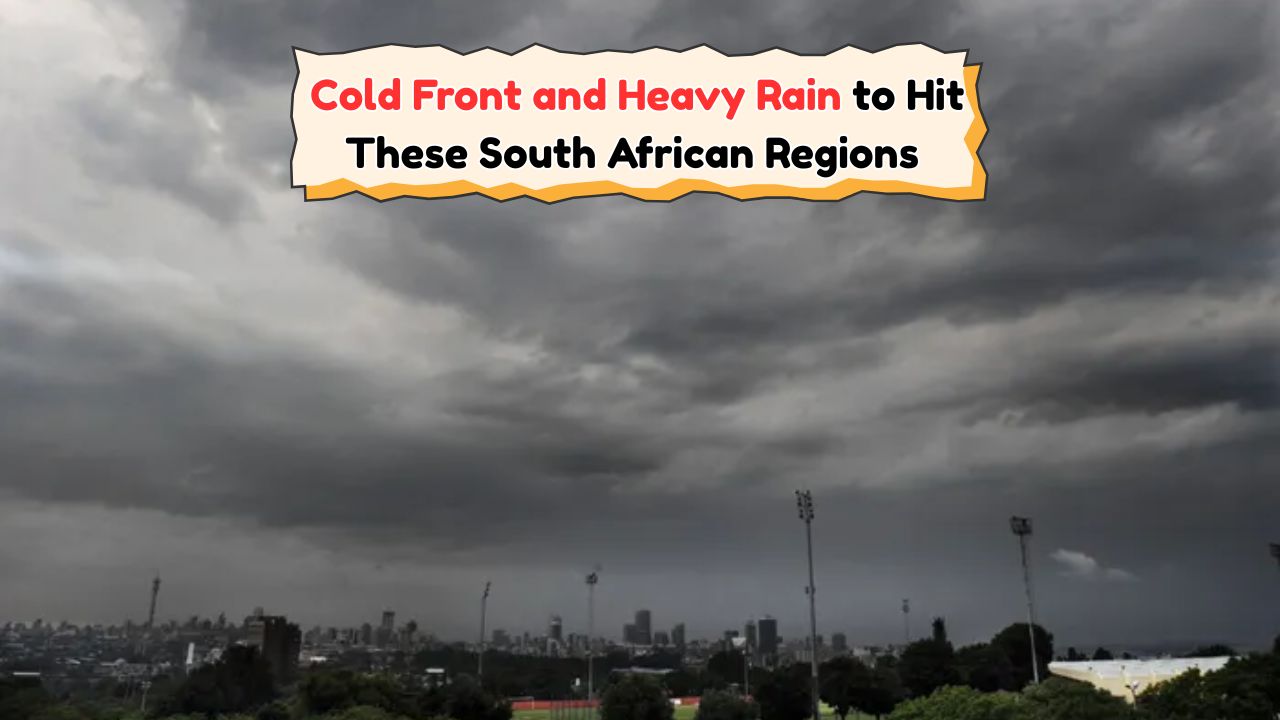Cold Front and Heavy Rain – The upcoming weekend is expected to bring a significant change in weather conditions across several parts of the country as a strong cold front makes its way inland. Meteorologists have warned that temperatures are likely to drop sharply, accompanied by widespread heavy rainfall in many regions. Coastal and inland areas are both expected to experience severe weather, with some places facing the possibility of flooding due to continuous downpours. Residents are advised to stay updated with official alerts and prepare for potential disruptions in travel, outdoor activities, and even electricity supply in certain vulnerable regions. The combination of colder weather and intense rain is likely to make the weekend particularly challenging for farmers, commuters, and communities living in low-lying areas. Authorities have already urged citizens to exercise caution on the roads and to avoid unnecessary travel during peak rainfall periods. With the sudden shift in conditions, it is crucial for everyone to take safety measures in advance and remain prepared for possible emergencies.
Areas Likely to Be Affected
According to weather forecasts, the cold front is expected to impact the southern and eastern parts of the country the most. Coastal towns are likely to experience strong winds along with heavy rainfall, raising concerns of coastal flooding and rough seas. Inland regions, particularly in low-lying and flood-prone areas, are also under alert as rivers and dams may swell due to the anticipated volume of rain. The central plateau is expected to see temperatures drop significantly, with cloudy and wet conditions dominating throughout the weekend. Mountainous areas might even experience sleet or light snowfall, adding further challenges for residents and travelers in those zones. Authorities have advised fishing communities and coastal businesses to prepare for interruptions, while motorists in urban centers are urged to expect waterlogged roads and possible delays in public transport services.
Safety Precautions and Warnings
The South African Weather Service has issued alerts advising residents to take proactive safety steps before the cold front arrives. Homeowners in flood-prone areas should secure their properties, ensuring drainage systems are cleared to prevent water accumulation. Motorists are encouraged to avoid driving during heavy downpours, as poor visibility and slippery roads significantly increase the risk of accidents. Farmers and livestock owners are also advised to prepare shelters and ensure water supplies remain clean despite the heavy rain. Emergency services have stressed the importance of keeping updated with weather bulletins and having essential supplies like food, blankets, and torches ready in case of prolonged power outages. Authorities have also emphasized the need to check on elderly family members and neighbors who might be more vulnerable to the sudden cold conditions.
Impact on Daily Life
The arrival of the cold front and heavy rain will inevitably affect day-to-day life across several regions. Schools, especially in rural areas, may face attendance disruptions due to flooding and inaccessible roads. Outdoor weekend events and gatherings are expected to be canceled or postponed as organizers prioritize safety. Public transportation networks, including buses and trains, could face delays or even temporary suspensions if waterlogging becomes severe in urban centers. In addition, small businesses reliant on outdoor trade may see reduced activity over the weekend, while tourism-related sectors such as hiking, beach visits, and wildlife safaris could experience sharp declines in participation. On a positive note, water reservoirs and drought-hit regions may benefit from the increased rainfall, potentially easing long-term water scarcity concerns. However, the immediate focus remains on minimizing risks to human life, property, and essential services during the severe weather period.
What Residents Should Do
Residents in affected areas should begin making preparations without delay. Ensuring that emergency kits are stocked with non-perishable food, clean drinking water, batteries, and medical supplies is highly recommended. Families are encouraged to plan for alternative power sources such as charged power banks or generators in case of blackouts. Travelers should reconsider weekend trips and, if unavoidable, check routes and road conditions beforehand. Farmers should move livestock to higher ground and secure agricultural equipment. It is also crucial for households to keep important documents safe in waterproof bags to prevent damage. For urban residents, clearing roof gutters and storm drains can help reduce flooding risks. The key is to remain cautious and prioritize safety over convenience during this period of unstable weather. Staying informed through trusted weather updates and local authority warnings will play an essential role in ensuring communities remain safe and resilient through the weekend’s severe conditions.
